Text
Ένας περίπατος σε ένα άλλο σχολείο
Ένας περίπατος συνηθίζεται να γίνεται στην εξοχή ή στην πόλη και να συνοδεύεται από κάποια εκπαιδευτική δραστηριότητα όπως η επίσκεψη σε κάποιο μουσείο ή στη συμμετοχή σε αθλητικές δραστηριότητες. Στη σημερινή επίσκεψη με τη συνάδελφο Άννα Πατεράκη και ένα τμήμα του σχολείου κληθήκαμε να απαντήσουμε στο ερώτημα εάν μαθητές/τριες και εκπαιδευτικοί κερδίζουμε κάτι από έναν περίπατο σε ένα άλλο σχολείο.
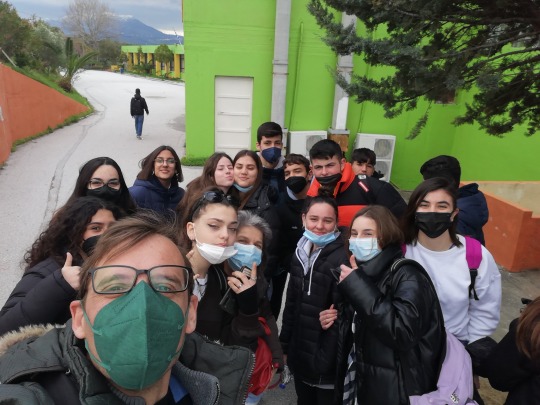
Τη βροχερή αυτή μέρα φτάσαμε στο Πρότυπο Ηρακλείου, όπου με χαμόγελα και αγκαλιές μας υποδέχτηκαν καθηγητές/τριες, μαθητές και μαθήτριες! πραγματικά ήμασταν πολύ χαρούμενοι και αμέσως πήραμε μια γερή δόση χαράς και αισιοδοξίας.

Στο σχολείο αυτό οι εκπαιδευτικοί προσφέρουν υψηλής ποιότητας μαθήματα. Παρακολουθήσαμε μαθήματα ρομποτικής στο εργαστήριο Πληροφορικής, Ελένη Ευριπίδη και Νέα Ελληνικά με podcast, καθώς και Αρχαία Ελληνικά σύμφωνα με τα Προγράμματα Σπουδών. Οι εκπαιδευτικοί μοιράστηκαν μαζί μας το υλικό, τις εμπειρίες και τις γνώσεις τους.

Το πιο εντυπωσιακό βέβαια ήταν ότι τα παιδιά πολύ γρήγορα ήρθαν σε επαφή, αντάλλαξαν μηνύματα και αποφάσισαν από μόνα τους να ολοκληρώσουν podcast!
Μαθητές από το πειραματικό Ρεθύμνου και το πρότυπο Ηρακλείου αποφάσισαν να ολοκληρώσουν παρέα την εργασία για το σπίτι! αυτό μας δίνει ένα μάθημα πρώτα απ' όλα για την όρεξη και την ανοιχτότητα των παιδιών, αλλά και για το πόσο πολύ επιθυμούν να βγουν από τα στεγανά του σχολείου.
Στη συνέχεια στο γραφείο των καθηγητών λάβαμε άλλη μία ζεστή φιλοξενία συνοδευμένη από κεράσματα, χυμούς γλυκά και άλλα καλούδια.

Δώρα σε τσάντες με τα πολύτιμα τεχνουργήματα, αλλά και τα ετήσια περιοδικά του σχολείου μας περίμεναν!!

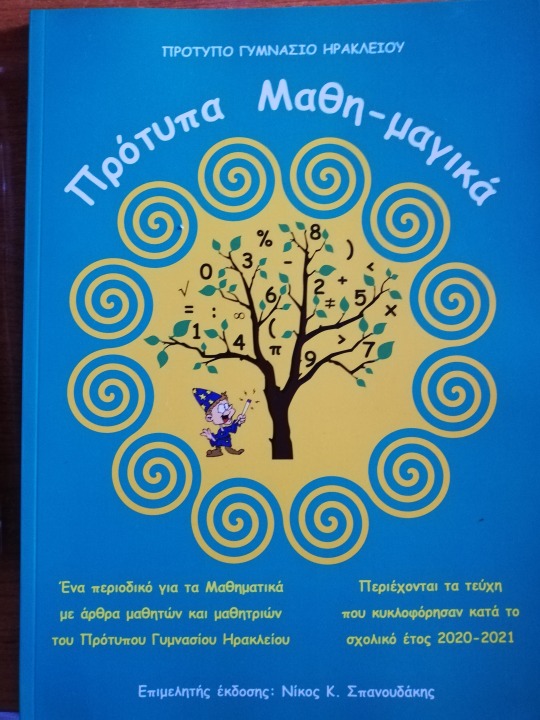
Οι εκπαιδευτικοί με όρεξη και μεράκι μας πρότειναν εκπαιδευτικές δράσεις που μπορούμε να σχεδιάσουμε μαζί για το Αρκάδι, στο μουσείο και στην Ακρόπολη της Ελεύθερνας, πεζοπορία στο Βώσακος, αλλά και παράλληλες δράσεις πέρα από τα μαθήματα στους ομίλους Φωτογραφίας, Θεάτρου, Κινηματογράφου, αστυνομικής λογοτεχνίας αλλά και σε θεματικές όπως τα έμφυλα στερεότυπα.
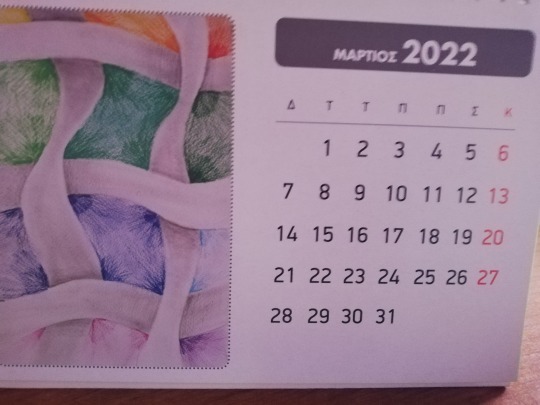
Μπορεί λοιπόν να μην προλάβαμε μια βόλτα στην παραλία του Ρέθυμνο ή ίσως να ξεκλέβουμε λίγο χρόνο για να ξοδεύουμε το χαρτζιλίκι της γιαγιάς και του παππού, καταφέραμε όμως να κερδίσουμε νέες εμπειρίες και να γεμίσουμε εικόνες.
Αν και κρύος αυτός ο Μάρτης, οι ψυχές μας ζεστάθηκαν από την θαλπωρή και τη φιλοξενία των συναδέλφων, τη σοφία των εκπαιδευτικών τους πρακτικών και τα ζεστά χαμόγελα των μαθητών/τριών.

Σας ευχαριστούμε
2 notes
·
View notes
Text
μάθημα την πιο κρύα μέρα του χρόνου
Αν και ήταν η πιο κρύα μέρα του χρόνου σε μια παγωμένη αίθουσα, το κλίμα ήταν τελείως διαφορετικό μέσα στην αίθουσα.
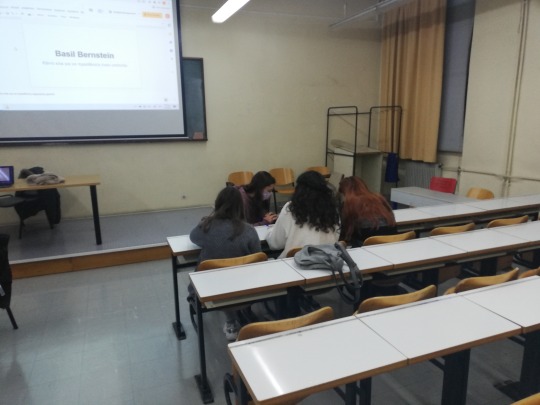
Η σημερινή συνάντηση ξεκίνησε με την ολοκλήρωση της ομάδας που ανέλαβε να μιλήσει για τη συνεισφορά του Foucault στην εκπαίδευση στηριζόμενοι κυρίως στο έργο του Επιτήρηση και Τιμωρία. Οι εκπαιδευτικές εμπειριών επικεντρώθηκαν στις εξετάσεις ως το κύριο στοιχείο της εξέτασης. Θέλοντας να ερευνήσουμε την πιθανότητα να υπάρχει και αντίστοιχη επιτήρηση στο νηπιαγωγείο μετέφερε την εμπειρία μου ως γονέας, όπου παρατήρησα πως στο Νηπιαγωγείο όπου πήγαινε η κόρη μου κατά την πρώτη συνάντηση, όπου ο στόχος ήταν να μας παρουσιάσουν οι νηπιαγωγοί την εκπαιδευτική τους προσέγγιση, οι γονείς απέρριπταν τα όσα έλεγαν οι εκπαιδευτικοί για ομάδες, δραστηριότητες, παιχνίδι και επικεντρωνόταν στο πότε θα μάθουν τα παιδιά τους να γράφουν και να διαβάζουν. Ρώτησα αν έβλεπαν την επιτήρηση και την τιμωρία στο νηπιαγωγείο ή όχι.
Αποτέλεσμα ήταν να εντοπίσουν και άλλα στοιχεία οι φοιτήτριες, αλλά και να ανοίξει η οπτική τους στο θέμα αυτό.
Στη συνέχεια άρχισε σε ομάδες η επεξεργασία των L. Stenhouse, bell hooks και H. Giroux. Αυτή τη φορά εργάστηκαν πιο γρήγορα από τις προηγούμενες φορές και φαίνεται να συνεργάστηκαν σε μεγαύτερο βαθμό. Παρατήρησα πως μία με δύο φοιτήτριες ίσως να δυσανασχετούν με τον ομαδικό τρόπο δουλειάς, καθώς με το τρόπο αυτό δε φαίνεται η ατομική τους δουλειά. Αυτό πιθανώς να είναι ένα θέμα στις ομαδικές δράσεις. Από την άλλη όμως είναι σημαντικό να ενιληφθούν την αξία και τη δυναμική της ομαδικής δουλειάς. Αυτό όμως θέλει κόπο και υπομονή.
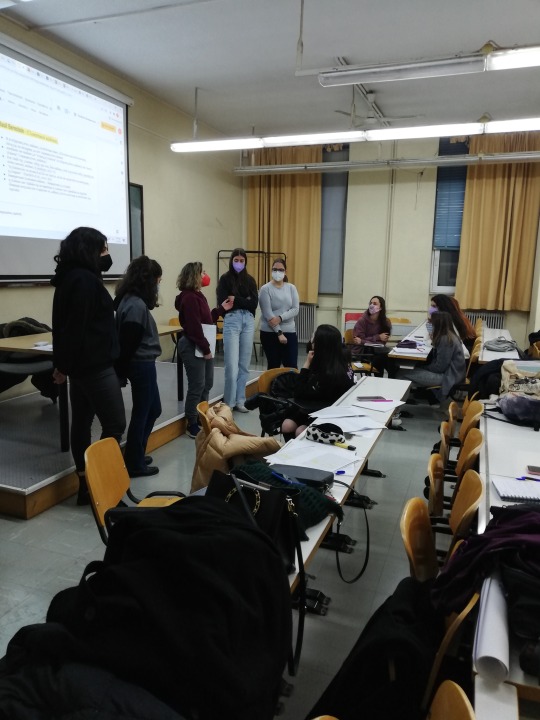
Ως προς τον Stenhouse οι φοιτήτριες διαπίστωσαν όπως ανέφεραν στην πράξη τη διαφορά του στοχοθετικού με το διαδικαστικό μοντέλο και αντιλήφθηκαν πως στο Νηπιαγωγείο υπάρχει μεγαλύτερη ελευθερία. Επίσης, ανέφεραν χαρακτηριστικά πως ουσιαστικά οι εκπαιδευτικοί φτιάχνουν το διαδικαστικό μοντέλο. Υπήρχε ερώτηση πώς μπορεί να φτιαχτεί κεντρικά ένα διαδικαστικό μοντέλο και εκεί ανέφερα πώς τα σχολεία Δεύτερης Ευκαιρίας βασίζονται στο διαδικαστικό μοντέλο.
Υπήρχε δυσκολία να κατανοήσουν πως ο εκπαιδευτικός είναι και διευκολυντής και μαθητευόμενος, καθώς αυτό βρίσκεται έξω από τις πρακτικές της ελληνικής πραγματικότητας.
Ως προς τον H. Giroux επικεντρώθηκαν στη φράση του πώς έγινε εκπαιδευτικός γιατί ήθελε να αλλάξει τον κόσμο. Αυτή η φράση τις επηρέασε και αντιλήφθηκαν τη δυναμική που έχει η δουλειά της εκπαιδευτικού.
Η bell hooks κέρδε το ενδιαφέρον. Βέβαια υπογράμμισαν δύο σημεία πως το έργο της επικεντρωνόταν στη τριτοβάθμια εκπαίδευση όπου έδρασε και η ίδια και πως κατηγορήθηκε που χρησιμοποιεί μη-ακαδημαϊκή γραφή. Εκεί ξεκίνησε μια συζήτηση ως προς το είδος γραφής που κυριαρχεί στην ελληνική πραγματικότητα και συνέδεσαν πως το ίδιο είδος γραφής επιβάλλεται από τις πανελλήνιες εξετάσεις.
Γενικά οι πανελλήνιες αποτελούν μία βασική και κρίσιμη εμπειρία, η οποία αποτελεί εργαλείο κατανόησης των υπόλοιπων εκπαιδευτικών εμπειριών και φαίνεται πώς μπορεί να αποτελέσει έναν πόρο γνώσης που μπορεί να αξιοποιηθεί από τις παιδαγωγούς, για να εξελιχθούν.
Τέλος, να αναφέρω πως προσπάθησα να ενισχύσω τη συζήτηση με τις ερωτήσεις της King (1993), όμως αυτό έγινε ως έναν βαθμό. Είναι αρκετά δύσκολο να σπάσεις τη σιωπή και να αλλάξεις από μια κουλτούρα, όπου οι ερωτήσεις είναι στοιχείο εξετάσεις σε μια κουλτούρα, όπου οι ερωτήσεις αποτελούν σημείο επεξεργασίας και εκκίνησης νέων κύκλων συζήτησης.
Σημαντικό στοιχείο είναι επίσης οι φοιτήτριες από κατατακτήριες καθώς δίνουν μία ακόμη οπτική στα πράγματα. Το γεγονός ότι στο Πανεπιστήμιο μπαίνουν φοιτήτριες και φοιτητές μίας ηλικιακής ομάδας περιορίζει τον πλούτο των κατανοήσεων.
Να αναφέρω τέλος πώς υπήρχε μια στιγμή όπου μια φοιτήτρια που στο πρώτο μάθημα όταν μιλούσε μόνο σε εμένα όταν δουλεύαμε σε κύκλο στο τελευταίο μάθημα κάθισε πάνω στο θρανίο και στο τέλος συνέδεσε μπροστά σε όλους τις εκπαιδευτικές θεωρίες με τη δική της οπτική. Εδώ διακρίνω μια απελευθέρωση στο σώμα αρχικά και στη συνέχεια στη σκέψη.
Επίσης, είναι ιδιαίτερα σημαντικό να προσθέσω τις αλλαγές στο γλωσσικ�� κώδικα των φοιτητριών. Σταδιακά εισάγουν όρους στο λεξιλόγιο τους χωρίς όμως να απαλοίφουν τις δικές τους λέξεις και την προσωπική τους έκφραση. Αυτό δείχνει για μένα πως δημιουργείται ένας υβριστικός λόγος ανάμεσα στο ακαδημαϊκό λόγο και στο λόγο των φοιτητριών που ανοίγει νέες οπτικές και συζητήσεις. Οπότε σκέφτομαι εν τέλειο έχει δίκιο η bell hooks. Τελικά είναι ο ακαδημαϊκός λόγος η γλώσσα του καταπιεστή ή μήπως ανοίγει νέες οπτικές; είναι όντως τόσο διπολικά τα ερωτήματα ακαδημαικός ή βιωματικός λόγος, γλώσσα απελευθέρωσης ή γλώσσα του καταπιεστή; ή μήπως χρειαζόμαστε κάποια πιο ευρεία οπτική και κάποια κριτήρια ώστε να κατανοήσουμε την έννοια της πρόσβασης;
2 notes
·
View notes
Text
Προσανατολισμοί της Κοινωνιολογίας - η περίπτωση του Foucault
Στο δεύτερο μάθημα στο ΤΕΑΠΗ για την Κριτική Παιδαγωγική αρχίσαμε να ερχόμαστε σε επαφή με τις θεωρίες που όπως διαπίστωσα ήταν ήδη εξοικειωμένες οι φοιτήτριες. Στόχος δεν ήταν να μάθουν κάποια θεωρία, αλλά να έρθουν σε επαφή με βασικές έννοιες και να τις αντιστοιχήσουν με εμπειρίες τους.
Οι φοιτήτριες δούλεψαν σε ομάδες πάνω σε παρουσιάσεις και κείμενα και συζήτησαν περιπτώσεις. Παράλληλα, άρχισαν να συζητούν θέματα και εμπειρίες που είχαν ζήσει.


Στη συνέχεια έγιναν παρουσιάσεις, τέθηκαν ερωτήσεις και κατατέθηκαν νέες εμπειρίες.

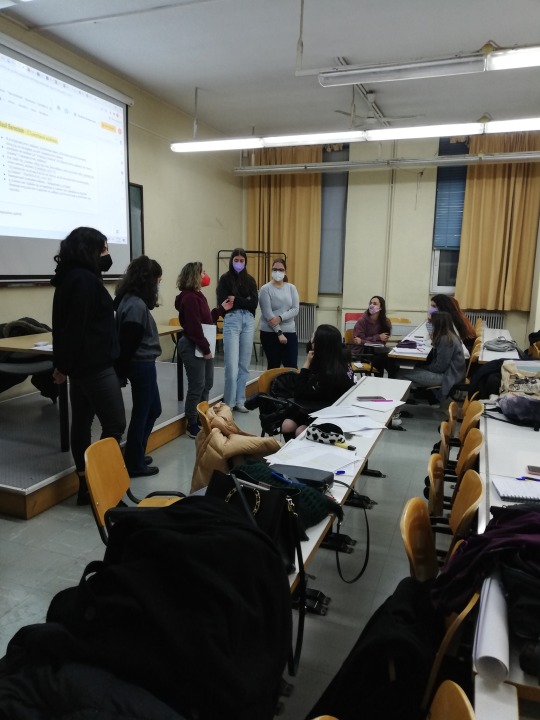
Το πολιτισμικό κεφάλαιο του Bourdieu ήταν μία έννοια που τη διαχειρίζονταν οι φοιτήτριες. Η έξη και τα πολιτισμικά πεδία αν και τα αναγνώριζαν δεν μπορούσαν να φέρουν παραδείγματα. Ως προς τον Bernstein δεν ήταν το ίδιο εξοικειωμένες, αν και κατάφεραν να συνδέσουν στο τον επεξεργασμένο κώδικα με τις διαλέκτους και ιδιαίτερα μία φοιτήτρια από την Κύπρο ανάφερε πώς ο γραπτός της λόγος είναι στην κυρίαρχη ποικιλία τα νέα ελληνικά, ενώ μιλάει κυπριακά και πως ένιωθε τις πρώτες μέρες στο Πανεπιστήμιο. Αντίστοιχα αναφέρθηκαν και περιπτώσεις με κωφούς και πώς η κοινότητα τους επεξεργάζεται τος κώδικες και αν θέλουν ή όχι να μάθουν οι ίδιοι οι μαθητές ή γονείς τους να μιλάνε μεταφέροντας μια περίπλοκη κατάσταση που από ότι φαίνεται δεν μπορεί να εξηγήσει επαρκώς ο Bernstein.
Στη συνέχεια επικεντρωθήκαμε στο έργο το Bernstein (2000): Pedagogy, Symbolic Control,and Identity και στις έννοιες ενίσχυση, ένταξη και συμμετοχή. Οι έννοιες είναι σημαντικές καθώς δείχνουν σύνδεση με τα δικαιώματα και το όραμά το για τη δημοκρατία. Πάνω σε αυτή τη συζήτηση φοιτήτρια επεσήμανε πώς με αυτό το έργο του προσπάθησε να απαντήσει στις κριτικές που του είχαν κάνει.
Δυστυχώς δεν προλάβαμε τον Foucault στον οποίο θα αναφερθούμε στο επόμενο μάθημα.
Είναι σημαντικό ναι αναφέρω πως θα έπρεπε να ενισχύσω περισσότερο τη συζήτηση. Πιθανώς να φέρω κάποια στελέχη ερωτήσεων που βοηθάμε.
Επίσης πώς θα πρέπει μετά από κάποιες θεωρίες να ακολουθεί ένας αναστοχαστικός διάλογος.
3 notes
·
View notes
Text
Πώς να ξεκινήσεις ένα μάθημα Κριτικής Παιδαγωγικής ΙΙ
Όλοι μας έχουμε παρακολουθήσει διαλέξεις στο Πανεπιστήμιο, όπου ο καθηγητής περνούσε την γνώση στα "άδεια δοχεία". Πώς όμως θα καταφέρει να αλλάξει αυτό. Στο ΤΕΑΠΗ στο Πανεπιστήμιο Αθηνών έμαθα από τις φοιτήτριες πώς υπάρχουν αλλαγές προς μια εναλλακτική κατεύθυνση με ακαδημαϊκούς που θέλουν να ακούν στους φοιτητές, με εβδομάδες αφιερωμένες στη διαπολιτισμικότητα και στη μουσειοπαιδαγωγική.
Αυτές οι εμπειρίες φαίνεται να έχουν επηρεάσει τους φοιτητές, όπως φυσικά και οι πρακτικές. Στα Παιδαγωγικά τμήματα Πρωτοβάθμιας, Δευτεροβάθμιας όλοι μας ως φοιτητές και φοιτήτριες είχαμε ανάγκη να συνδέσουμε τη θεωρία με την πράξη. Οι θεωρίες είναι γοητευτικές, αλλά χωρίς την πράξη είναι κενές. Από την άλλη και η πράξη χρειάζεται να τροφοδοτείται από τη θεωρία.
Στη λογική αυτή και έχοντας τη δυνατότητα να αρχίσω τη διδασκαλία στο ΤΕΑΠΗ αποφάσισα ότι θα έπρεπε να ακολουθήσω έναν πιο βιωματικό τρόπο και να ενεργοποιήσω τις φοιτήτριες, προτού ξεκινήσουμε να συνδέουμε τη θεωρία με την πράξη και προτού έρθουν σε επαφή με δοκιμασμένες πρακτικές.
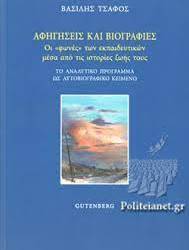
Βασισμένος στο νέο βιβλίο του Βασίλη Τσάφου άρχισα να σκέφτομαι πώς μπορεί να εφαρμοστεί σε εκπαιδευόμενος νηπιαγωγούς, έτσι άρχισε ένα βιωματικό εργαστήριο, όπου απαντήσαμε στα εξής ερωτήματα:
1. Ποια είναι η καλύτερη εκπαιδευτική εμπειρία που είχα ποτέ; (Σε ομάδες συζητήστε ποια η καλύτερη εκπαιδευτική σας εμπειρία. Αν θυμάστε την εμπειρία σας από τις Πανελλήνιες εξετάσεις παρακαλώ καταγράψτε άλλη μία σημαντική εμπειρία. Να αναφέρετε γιατί αυτή η εμπειρία ήταν σημαντική για εσάς).
2. Ποιο είναι το πιο σημαντικό εφόδιο που έχω κερδίσει από τις σπουδές μου μέχρι τώρα; Σκεφτείτε όλα τα μαθήματα που έχετε κάνει μέχρι τώρα στο Πανεπιστήμιο και αναφέρετε αυτό που που πιστεύετε ότι θα σας βοηθήσει στο μέλλον στη σχολική αίθουσα. Γιατί σας επηρέασε αυτό το μάθημα;
3. Ακούγοντας τη λέξη κριτική παιδαγωγική τι σας έρχεται στο μυαλό; Καταγράψτε τις απόψεις σας και μοιραστείτε τες με τις συμφοιτήτριές σας
4. Τι προσδοκώ να μάθω από ένα μάθημα κριτικής παιδαγωγικής; καταγράψτε τις απόψεις σας και μοιραστείτε τες με τις συμφοιτήτριές σας
Το πρώτο βιωματικό εργαστήριο ήταν πολύ δυνατό και μία φοιτήτρια δε δίστασε και μοιράστηκε μαζί μας δυσάρεστες εμπειρίες. Η ενθάρρυνση, το ενδιαφέρον, η εμπιστοσύνη αναδύθηκαν ως βασικά στοιχεία των εκπαιδευτικών εμπεριών. Το βασικότερο όμως όλων ήταν η πρόσβαση. Από όλες τις φοιτήτριες λίγο ή πολύ αναφέρθηκε η δυνατότητα πρόσβασης στο Πανεπιστήμιο ή η μάθηση. Σε μικρότερο βαθμό αναφέρθηκα μικρότερες που αφορούσαν κυρίως μοναδικές εμπειρίες, όπως για παράδειγμα το ανέβασμα θεατρικής παράστασης.
Για να δούμε τι θα γίνει στο επόμενο μάθημα!
1 note
·
View note
Text
Some tips for the interviews !
Here are some tips from my colleague Eirini Renieri!
* I choose the family member who talks... and the one that is more communicative...
* From the questions I choose 1-2. The ones I like more...
* Intervies is a dynamic procedure. I listen to the theme my relative wants to talk. I do not interrupt. Any answer can become a new question...
* I do not interrupt! maybe the interlocotur does not provide the right answer... it doesn;t matter! I might listen to something unexpected!
* I use mu cellphone or some other machine! The interlocotur should know that I am recording him/her!
* I do not forget! When the interview finishes, I thank for the interview!
1 note
·
View note
Text
Discovering my family (Past)
After the collection of the photo-stories (present), the students are going to collect stories from their family (parents, grandparents etc) To do this the students are going to ask some questions. It is important to pose questions that are interested in. Subsequently on Wednesday 2/2/2022 a meeting took place in which the students posed indicative questions such are the following:
1. How was your puberty?
2. Why haven't you finish school?
3. Can you describe friendship and love affairs from your time?
4. How was school? Was it austere?
5. Which were your nutrition habits?
6. What did you spent your summer time / your free time?
7. How did you communicate without cell phones?
8. How was your life without technology?
9. From which age did you work and why?
10 How was your house? Did you have any facilities?
My colleague Eirini Renieri shared her experience, since she has experience in interviewing the past as well as in documentaries.
1 note
·
View note
Text
Keeping a journal!
the students in this project are empowered as auto-ethnographers, therefore they are implemented in highly demanding research activities. Oe of them is keeping their personal scientific journal To do this we are based on Lacey (1996: 354)

The students after each activity are writing their journals. Emmanouella Karapidaki made separate google docs for each student
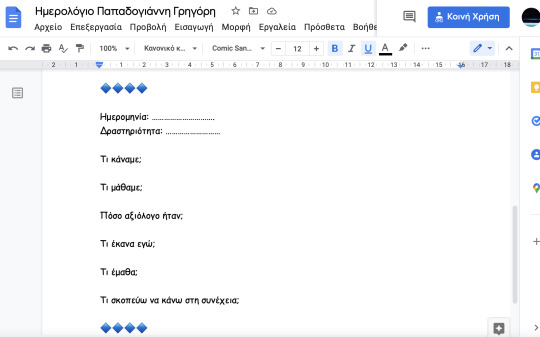
The questions are
1. what have we done?
2. What have I learned?
3. How valuable was it?
4. What did I do?
5. What did I learn personally?
6. what am I planning to do next time?
1 note
·
View note
Text
Stories from the Present! Students
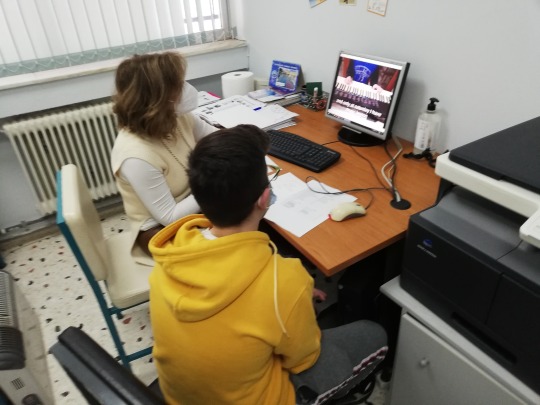
The last two weeks were very creative for the Experimental Junior High School of Rethymno and especially for the students that are participating in this project.

The students have started constructing their photo-stories (10-12 photos from a "typical day"). The photo stories have been uploaded in the e-class (Edmodo).
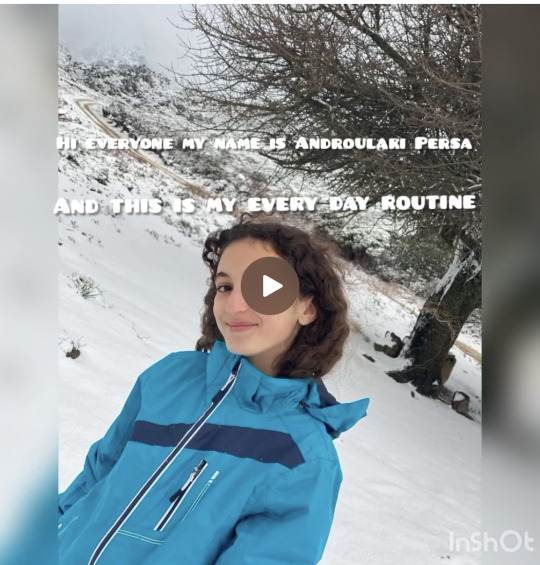
Afterwards the English teacher Stella Skandalaki gave feedback. She worked personally with each one of the students. She commented on the multimodal text not only as it concerns the English language but also based on a holistic approach she commented on the video speed, the color of the letters as well the speech.
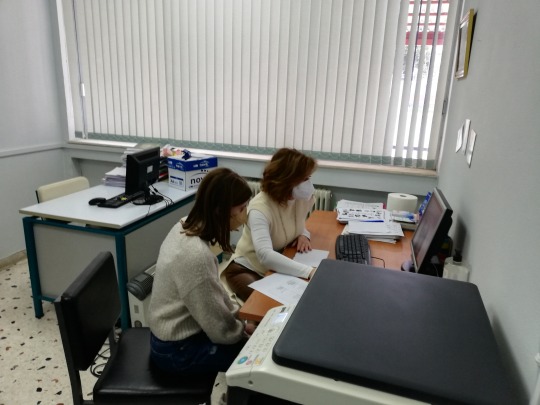

From this experience Stella commented that she identified common mistakes that arise from transferring from the Greek language to English (e.g. the misuse of the "be going" form). The students identified their mistakes away from traditional school texts in real life situations. Additionally all the students were familiar with video constructing, editing and publishing. Within a week all the students will have their video ready for the e-twinning platform.
1 note
·
View note
Text
What are we planning to do in this project ?
In this project we are trying to empower the students as researchers and auto-ethnographers. The project is based on the students experiences (stories) and this is the main vehicle for all the other activities.
Main purpose is to develop critical thinking and students as citizen we live and maintain a democratic society. since the countries are culturally connected with the values of Ancient Greece and Rome the concept of Democracy is also explored in these times.
So this is our plan
1. The first task (presentation of themselves) is part of the autoethnography also. The students are working on photo story and collet 10-12 photos from a typical day. The can use voice over or captions (PRESENT)
2. The second step is to collect stories from grandparents or parents - interviews about their lives. (PAST). Through these two steps the students have already collected the data from their communtities.
3. The third step is to study similar stories from ancient Rome and Athens (ANCIENT PAST). For this reason with my colleague Eirini Renieri have read and proposed some very useful books. These books are translated in many different languages. Eva Loro colleague from Spain is aware for theses books. Our proposal is to choose stories from these books that are closed to the students' photo-stories (Present) and the interviews from parents and grandparents (Past) and convert them to dialogues for the documentary.
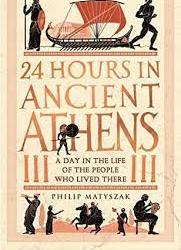
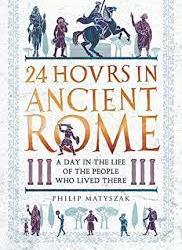
3. The fourth step is the analysis. The students will watch the videos from all the countries from PRESENT, PAST and ANCIENT PAST and are trying to identify SIMILARITIES and DIFFERENCES.
4. Now they have done the analysis, but they haven't done the interpretation: Why do we have these differences and similarities? To answer these questions we need slideshows from Ancient Rome, Ancient Athens and Europe. We have to focus on the institutions and the living conditions in order to explain.
5. After the interpretation each students should writes its personal account answering which are the similarities and the differences in ancient times, past and present. Why do these similarities exist?
6. The last step is to disseminate the findings from the students final accounts.
That' planning! Let's see what is going to happen! Things change when students and teachers from different countries are collaborating, and these changes lead to new experiences and better results.
1 note
·
View note
Text
A week full of meetings!
As it concerns the project Interview to the Past on Monday 12/12/2021 we announced the students that are going to participate in theErasmus+ project Interview to the Past. We also had the first meeting we the students to answer their questions and present the project in brief.
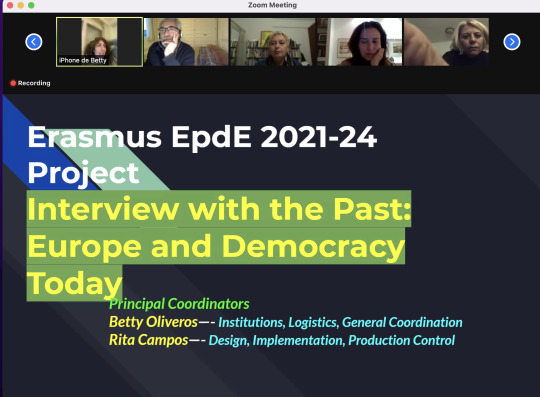
The teachers’ transnational meeting took also place on Tuesday 14/12/2021, in which teachers from France, Spain, Italy, Portugal and Greece (Athens and Rethymno) had the opportunity to meet each other. The coordinators outlined the linguistic, digital and historical line of the project.
You can find the presentation of the outline of the project here.
1 note
·
View note
Text
Interview to the Past: DEMOCRACY and Europe today (Erasmus+ project) Let the project begin!
On Saturday 20 November the pedagogical team of the Exp JHS UoC started evaluating the students’ applications and videos. It was a difficult procedure since most of the students seemed to have high skills. The teachers decided to discuss with the students the opportunity to participate in the project as many students as possible. Our ex-partner Katerina Kakogianni offered her precious unique experience!
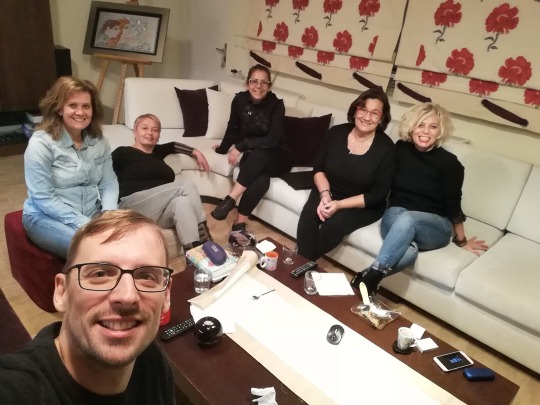
On Sunday 21 November the first transnational conference took place where the coordinator presented the whole project as well as the procedures and the tasks each country should do in the next three months, before the first transnational meeting in Lyon, where teachers and students will be trained in the concept of Democracy in Ancient Rome, as well as in auto-ethnography.

Find the outline of the project here
Information about students as auto-ethnographers here
1 note
·
View note
Text
Interview to the Past: DEMOCRACY and Europe today (Erasmus+ project): the auditions have started
In my school in the Junior High Lab School University of Crete we are very happy participating in the Erasmus+ project Entrevista al Pasado: DEMOCRACIA y Europa hoy («Interview to the Past: DEMOCRACY and Europe today».) In this project participate schools from France, Spain, Italy, Portugal and Greece (Rethymno and Athens).
Ιn this project we are going to discover the democratic values in Ancient Rome and Greece and we are going also to research in which degree these values survive in contemporary societies. Additionally, we are planning to explore how people’s live is affected in democratic societies now and then.
To do so we are going to apply action research with students as digital developers and autoethographers.The construction of a documentary will help us to rediscover past and autoethongraphy to identify today’s reality.
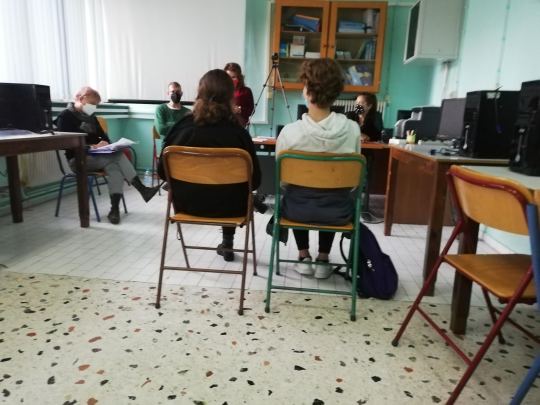
The next two months are dedicated in recruiting the students that are willing to participate in this project. Subsequently, interviews and auditions are taking place in order to locate which students are willing to research, narrate, meet, think, agree, disagree, feel, rediscover and negotiate their past, present and future identity.
Let the adventure begin!
Pedagogy team: Fotini Giannakoudaki, Manou Karapidaki, Ioannis Markantes, Eri Renieri, Konstantinos Sipitanos and Stella Skandalaki
1 note
·
View note
Text
Συζήτηση για τον σχολικό εκφοβισμό στο Πειραματικό Γυμνάσιο 2020-2021
Αν και φέτος, η πανδημία και η χρήση μάσκας κυριαρχούν και στις σχολικές συζητήσεις, οι μαθητές και οι μαθήτριες δεν παύουν να αντιμετωπίζουν προβλήματα στις σχέσεις μεταξύ τους.

Ανάμεσα στα προβλήματα που αντιμετωπίζουν πέρα από τις δυσκολίες προσαρμογής της Α τάξης από το Δημοτικό στο Γυμνάσιο, είναι και ο σχολικός εκφοβισμός.
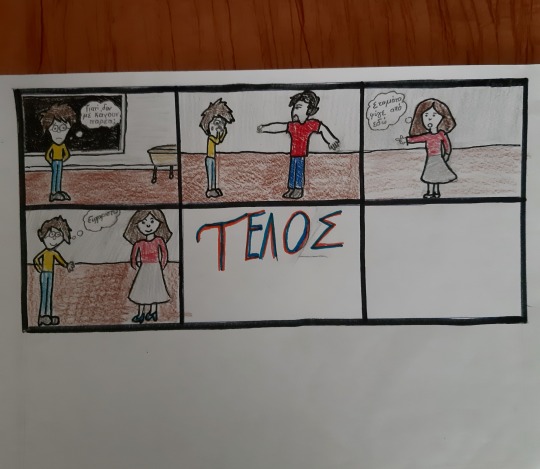
Σε μια προσπάθεια να συζητηθεί το ζήτημα οι μαθήτριες και οι μαθητές σχεδίασαν τα δικά τους κόμικ, είτε με τη βοήθεια των εργαλείων δεύτερης γενιάς (Web 2.0), είτε βασιζόμενοι στο ταλέντο τους.
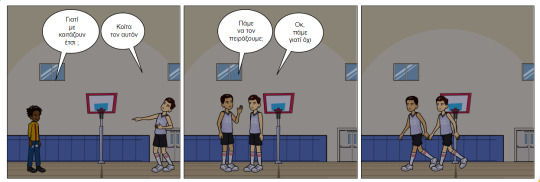

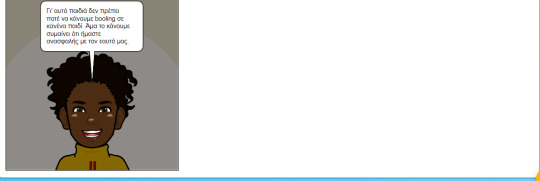
1 note
·
View note
Text
School clubs, unique projects, Erasmus and e-twinning by Exp. JHS UoC
A special event took place in the Model Experimental Junior High School of Rethymno on the 20th of June 2019.
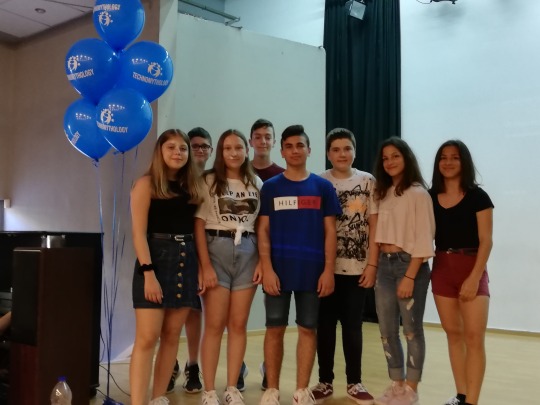
In that event, a lot of school activities were presented to parents, students, ex-students and members of the community.
The school runs a lot of clubs as an Experimental School like Literature, Photography, Social Action, Vlogging. Special projects such as Stem and theatrical workshop were also presented.
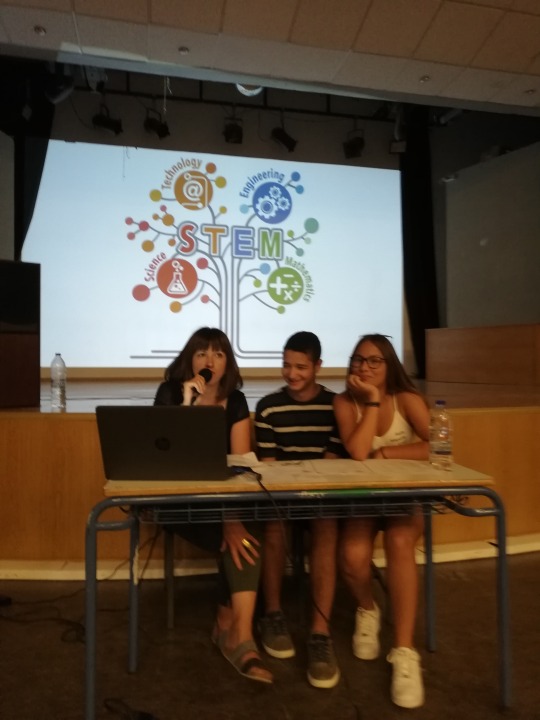
As it concerns the Erasmus+ projects ‘‘Together for Inclusion” project was presented also by the School’s Pedagogical Group.
As it concerns my personal involvement I presented with my colleague Arsenis Arsenakis our collaborative Club Let’s Vlogging, were the students’ vlogs were synthesized in a compilation video. I participate also in the above Erasmus + project.

The BackpackID Erasmus the project was also presented since students from the school participated in the projects first application in the classroom.

e-twinning Projects
The school run in that school year several e-twinning projects. Two of them were presented in the school’s final fest, Through teen’s lenses, that was fulfilled by my colleague Anastasia Rigaki and Technomythology that took place by me.
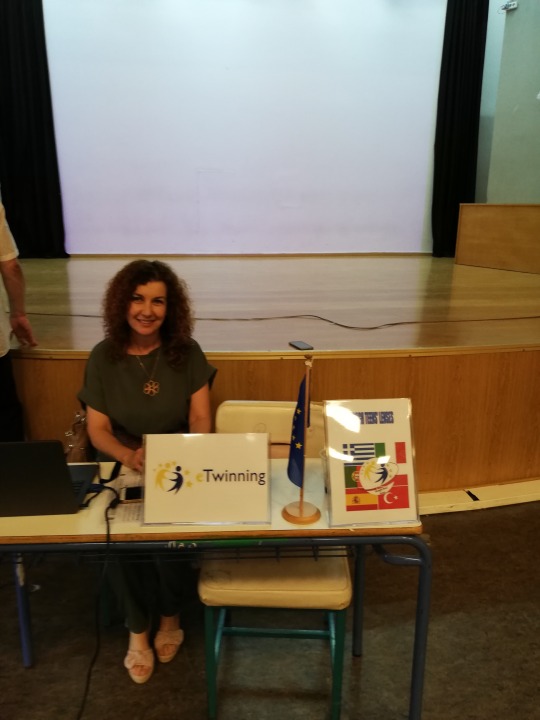
The first project presents the students’ everyday life to promote the multiple identities that connect us beyond borders. In the second project, the myths are the source were technological issues are raised.

At the end of the fest, we released balloons named by the above e-twinning projects.
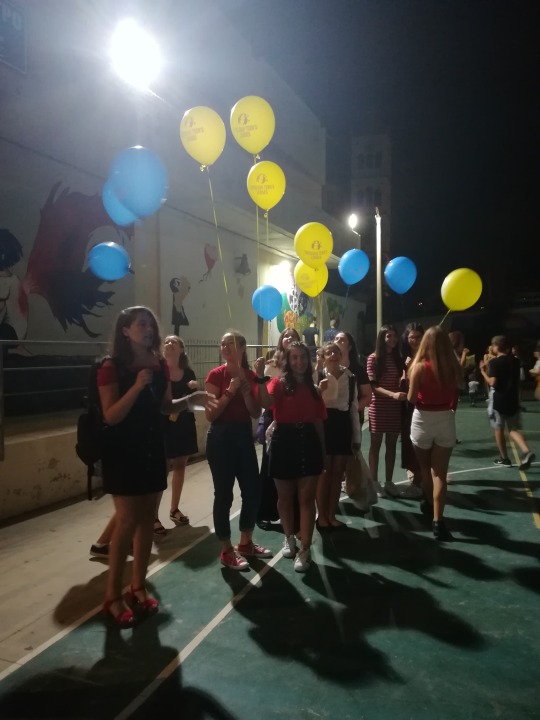
Here is a video from the balloon release!
youtube
youtube
a promo video, concerning e-book
youtube
4 notes
·
View notes
Text
Educational Systems and Schools around the world
Αυτό είναι ένα άλλο e-twinning project που πραγματοποιούμε με το Β1 (2019-2019). Σε αυτό το πρόγραμμα κάθε χώρα παρουσιάζει το σχολείο της, αλλά και το εκπαιδευτικό της σύστημα (σύστημα βαθμολογίας, μαθήματα, πρόγραμμα μαθημάτων). Τον Ιανουάριο θα αναλύσουμε τις ομοιότητες και τις διαφορές των εκπαιδευτικών συστημάτων προσπαθώντας να τις αναλύσουμε.
Here is another e-twinning project we are dealing with. In this project, each country presents its educational system. In January we will start comparing the educational systems and try to deepen on the issues justify the similarities and differences.
you can find more here:
ttps://padlet.com/sipitanoskonstant/6thku1oy9yze
3 notes
·
View notes
Text
Transitions in our personal lives and in our family stories: Finding the passages that connect us
Age: 10-15
Partners: 5 countries, 1 to 3 teachers from each country
Areas: Social Sciences, Foreign Languages, Citizenship, Informatics, ICT
Languages: English and each country’s (translanguaging)
Inspiration: Social integration within refugee crisis
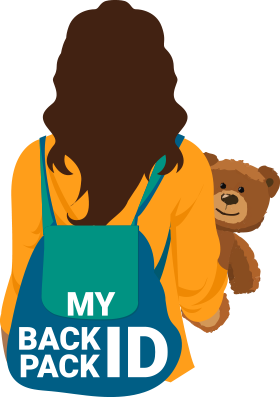
Abstract:
In that project, the students will realize that their stories and their families experience the transition in their lives (e.g. moving from city to village, from Primary education to Secondary education, from single to married life etc). In these transitions, we always need to take with us the most important ‘‘items”. In a fantastic scenario of living your place, you need to take 5 important items with you (photos, smells, objects, songs etc). Why do you take these objects with you? Has somebody else taken the same items as you? Why have you taken the same things with somebody else?
Goals:
· raising children’s awareness about the refugee crisis
· improving literacy skills
· developing social skills (sharing stories, respect others’ ideas, self-confidence)
· experiencing joy from learning other stories
· gaining experiencing from ICT tools
Work process
1. the teachers group the students transnationally (7-20 January)
2. the transnational groups are participating in video Watching through the Watch2gether https://www.watch2gether.com/ (21January) - Event
3. each transnational group draws the term “transition” in the COLORILLO http://colorillo.com/?fbclid=IwAR0-kRUyO8bx1D6vMBsLySR4LqoariheffCO55NbOIHHRKQXvld8be-4pec (22 January) - Event
4. Each student constructs a video from their’s everyday life (e.g. 10-12 pictures – one each hour- from their daily routine) with WeVideo or WeVideo (https://app.wideo.co/en/createAccount/ (28 January-9 February)
4. Each student constructs a video from family transition story (parents/grandparents) with WeVideo or WeVideo (11February – 23 February)
6. the students upload, comment and discuss the videos in EDMODO. Each country comment (25February – 15 March)
7. the students write in transnational groups in google docs their thoughts about the project and also answering these questions (15 March – 30 March)
o with which people do I find similarities and why
o with which people do I find dissimilarities and why
o if I feel dissimilarities with which other people in the world do I feel and why
8.draw collaboratively the final sentiment from that project in in the COLORILLO (1 April – 15 April) http://colorillo.com/?fbclid=IwAR0-kRUyO8bx1D6vMBsLySR4LqoariheffCO55NbOIHHRKQXvld8be-4pec
Expected results
· expanding the idea of otherness
· learning new ICT tools
· Understanding their multiple identities
· Connect their lives with their family stories
3 notes
·
View notes
Text
School systems and schools in the world... can I use more than one language in my classroom?
One of the courses I teach and my favorite in Modern Greek. Since it is not L2 class rather Class 1 this is the dominant language. Of course, in the e-twinning projects, the languages that are promoted is English, French, German, meaning that other languages are excluded and that we cannot participate... I disagree with that.
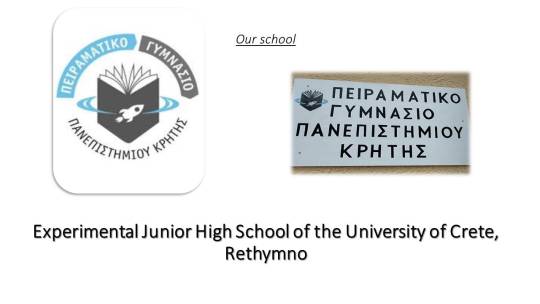
I believe that we should leave space for more languages. Why not having both languages or even more? Why don’t we have three or four languages in a single project? Switch coding is one option, but also there are other options like translanguaging, where the students can use whichever language they want. They can feel free beyond grammar rules and strict contexts to use more than one language and why not their heritage language!
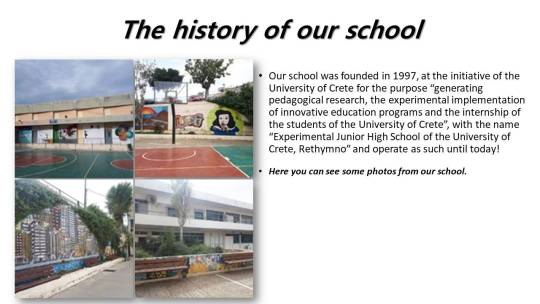
In my first attempt in the classroom, I asked this option. Unfortunately, the students used only English. Even that option was not fully accepted. Some colleagues were surprised. Why do you have this language in that course? I have to think about it. Do I promote the dominant language and undermine Greek?
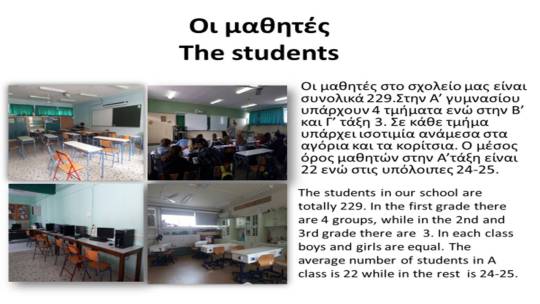
My purpose was to communicate our school in other countries! A good reason to promote digital literacies and communication! The students took pictures, wrote captions in Greek and English and workes collaborative designing presentations.
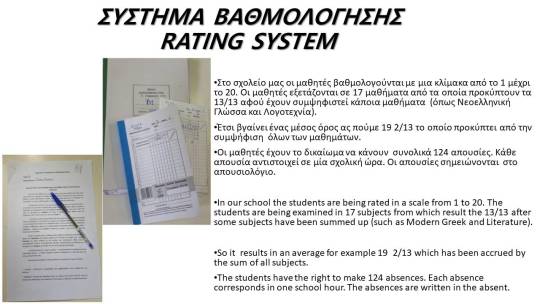
If all the school members keep their languages and English we can earn both. Learning through English, learning through various languages, discussing in Greek/mother tongues and generally, creating and cultivating a third space where all the languages are accepted.
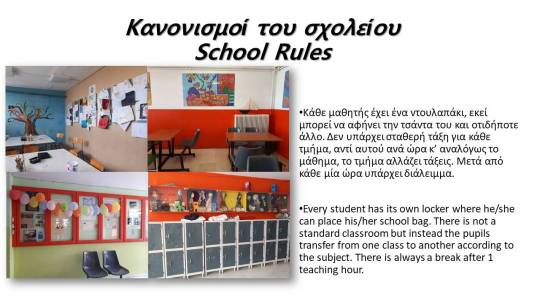
Discussing also that problem will be fruitful. What do you think?
photos from students (B1 classroom 2017-2018) participating in the e-twinning project “Scool systems and schools in the world’’
5 notes
·
View notes